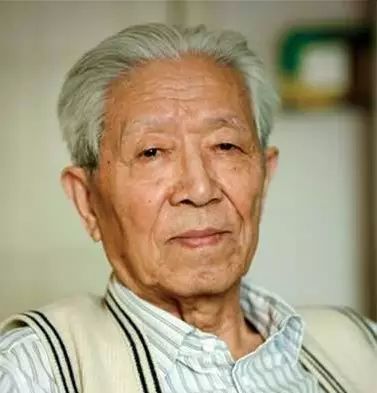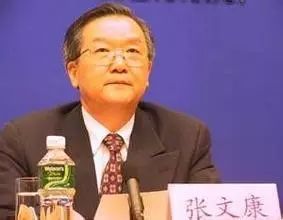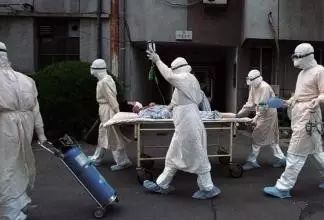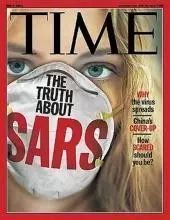【Reprint】Jiang Yanyong: "All I said was the real situation in 2003"
The article is reprinted from "Southern People Weekly" in 2013, the original author Wei Yi
(Because it is not the author himself, please carefully give likecoin to this article, thank you~)

When mentioning "SARS" 13 years ago, many people would think of masks, Radix Banlangen, the famous medical expert Zhong Nanshan, and the Xiaotangshan Hospital built on the ground in seven days and seven nights, but few people know that without him - Jiang Yanyong used great Courage to tear open the covered truth, if not for his determination, "Over the past 50 years, after going through various political campaigns, I have deeply realized that it is easiest to tell lies and empty words, but I will never tell lies words.” The epidemic is very likely to turn into a tragedy that affects more people. When "telling the truth" becomes a dangerous act, where does the conscience of intellectuals go?
On October 7, 2012, Jiang Yanyong, a retired doctor from the General Surgery Department of the 301 Hospital, celebrated his 80th birthday. Friends and family gather to tell the memories that have stuck with him over the past 80 years. Luo Chenghua is a student of Jiang Yanyong. He stepped onto the stage and said, "He was a hero during the SARS period."
In recent years, people rarely see Jiang Yanyong's name in mainland publications. And when 2013 comes, when people rethink the impact of that spring 10 years ago, his name cannot be ignored.
On the cover of Time magazine on April 21, 2003, the upper right corner is the head of Saddam Hussein with a red cross. It was at the time of the Iraq War. But there was another thing that the whole world paid attention to that year, which can be compared with war. Taking center stage on the cover of this issue of Time is the four-letter word: SARS. The following row of small characters is:
What did Beijing know?
The text of the cover story is accompanied by the profile picture of Zhang Wenkang, then Minister of Health. On April 3, at the press conference held by the Information Office of the State Council, Zhang Wenkang said to the gathered media reporters: "There are only 12 cases of SARS in Beijing, and 3 deaths. China's SARS has been effectively controlled." He further stated : "Everyone is welcome to come to China to travel and negotiate business. I guarantee everyone's safety, whether you wear a mask or not is safe."

It was Zhang Wenkang's words that stimulated Jiang Yanyong who was sitting in front of the TV.
outrageous numbers
"I think the figures provided by Zhang Wenkang are far from the real situation." This was Jiang Yanyong's reaction back then. For this reason, he began to ask relevant doctors about the situation of patients admitted to the hospital.
In early March 2003, a Shanxi patient was sent by a local doctor to No. 301 Hospital where Jiang Yanyong worked. When the doctor introduced the condition, he said that the patient had had a fever and cough for four or five days, and they suspected it might be SARS. The doctor in the emergency department replied that this is impossible, as Guangzhou has already controlled SARS. Thus, the patient was admitted to the respiratory department.
However, a few days later, the parents who accompanied the patient became seriously ill. After being suspected of SARS, the family was transferred to the 302 Hospital. Soon, the patient's parents died, and the daughter survived, and returned to Shanxi after the treatment improved. The disease has shown a strong contagious power. After the 302 Hospital accepted the patients, although they were strictly treated according to respiratory infectious diseases, more than ten doctors and nurses were still infected.
In the Department of Hepatobiliary Surgery of Hospital 301, a patient with gallbladder polyps developed a fever during preparation for surgery, suspected to be SARS, and was transferred to Hospital 309, where he died a few days later. Two doctors and two nurses in the Department of Hepatobiliary Surgery were infected.
"Hospital 302 has admitted 40 patients and 2 died; Hospital 309 has admitted 60 patients and died 7. On April 4, the director of Hospital 301 announced at the handover meeting that Hospital 301 had 46 confirmed and suspected cases. SARS patients."

At the end of March, Zhu Ke, Jiang Yanyong's classmate at Peking Union Medical College and the director of the Department of Neurology at 301 Hospital, suffered from lung cancer. When he was transferred to the thoracic surgery department for surgery, he developed a high fever, which was suspected to be SARS. Experts from Hospitals 302 and 309 conducted consultations, and Jiang Yanyong was among them, so he learned that there were already many SARS patients in Hospitals 302 and 309. "I feel that this infectious disease is extraordinary and should be taken seriously."
Beginning in early March, not long after the 301 Hospital admitted patients, the leaders of the hospital held a meeting with the Ministry of Health. The spirit of the meeting was conveyed that although Beijing already had SARS, in order to ensure the success of the two sessions, the matter must be kept strictly confidential as a discipline. Do not spread. "I got this information very quickly, and felt that it was very wrong to do so. But at that time, I didn't see that SARS was such a serious and dangerous disease, so I didn't care about it."
After Zhang Wenkang said those words, general surgeon Jiang Yanyong decided not to remain silent. "I immediately went to the leaders of the medical department and outpatient department and asked them to report that Zhang Wenkang's speech was wrong."
send mail
The day after Zhang Wenkang spoke, after lunch on April 4, Jiang Yanyong met Zhang Liping, the former head of the Ministry of Health of the General Logistics Department, and another older head of the Ministry of Health, Wang. "I asked them what they thought of Zhang Wenkang's speech, and they all thought it was wrong. They said that there were more than 40 cases of SARS reported internally by the General Logistics Department. I joked with them and said, how did you bring out a liar minister."
Jiang Yanyong believes that the time has come to wait for no one. Because, in mid-April, there will be a large number of Chinese and foreign tourists visiting Beijing, who are very likely to be infected with SARS, and may spread to the whole country and the rest of the world. "That would have extremely bad consequences for the people of our country and the world. I have a duty to tell the world what I know."
On the evening of April 4th, Jiang Yanyong wrote down what he knew, and sent e-mails to Central Four and Phoenix Satellite TV according to the email addresses he saw on TV:
Yesterday, the Chinese Minister of Health said at a press conference that the Chinese government has taken the SARS issue very seriously and the disease has been brought under control. But according to the figures he provided later, there were 12 cases of SARS in Beijing and 3 deaths. After reading it, I couldn't believe it.
When I went to the ward today, all the doctors and nurses were very angry after reading yesterday's news. So I am sending this letter to you, hoping that you will also work hard to be responsible for human life and health, and use the upright voice of journalists to join the ranks of the struggle against SARS.
The last sentence is: "All the materials I provided are true, and I take all responsibilities."
In the next few days, Jiang Yanyong did not get any reply. But this information was learned by other overseas media. On April 8, reporters from The Wall Street Journal and Time magazine found Jiang Yanyong and interviewed him. "Time's reporter Susan Jakes first wanted to find out whether the numbers I provided were true. I told her that the numbers were confirmed by several doctors and were very reliable, and I took full responsibility for it. She suggested that I can not sign. I told them that the credibility of the unsigned news is much worse, and I should sign it. She then asked, did I consider the consequences of doing that. I said, what I said was all true, and I was protected by the Constitution. But I also prepared for the worst."
"TIME" magazine posted the content of the interview on the Internet that night, and then published it in the magazine on April 21. Starting at 8:00 a.m. on April 9, three phones in Jiang Yanyong’s home rang non-stop. Ten media outlets called for interviews.

"I was originally scheduled to give lectures to advanced students and postgraduates at the department at 3 p.m. on April 9, but I had to delay the start by nearly an hour. Before the lecture was over, the college found me and wanted to talk to me."
At 7:30 and 10:30 that night, hospital leaders visited Jiang Yanyong's home twice to talk. "The conversation was conducted in a very polite manner. The leaders of the academy first affirmed that my motivation and starting point were good when I was interviewed by foreign media, but as a soldier, doing so violated the relevant discipline of the army. contact with foreign media.
I said that I didn't know there was such a regulation before, and I would discuss it with the courtyard in advance. At the same time, I said, after reading Zhang Wenkang's speech, you must think that he is wrong. Zhang Liping, Minister Wang and others have retired, so they can tell the truth. Our country has suffered too much from telling lies in the past. I hope you will try to tell the truth in the future. "
make a suggestion
Jiang Yanyong has always cherished the value of telling the truth. He once studied at Yenching University, and the school motto of Yenching "Freedom through Truth, Service through Service" is engraved in his heart. "As a doctor, from learning to see a doctor by oneself, to being able to see some complicated diseases, and being able to solve some difficult diseases, school book education is important, but it mainly depends on the gradual accumulation of experience in dealing with each patient. That is, It is said that every bit of progress of a doctor is given by the patient. Therefore, the skills learned from the patient should be better used to serve the patient.” This is Jiang Yanyong’s understanding of the school motto.
On April 10, 2003, Jiang Yanyong attended the meeting of the Yenching Alumni Association Council. One of the items discussed in the meeting was whether the back-to-school activities originally scheduled for April 19 should continue. Several doctors on the board made suggestions first.
The first speaker was Academician Hu Yamei. She is the president of the Children's Hospital and the leader of the Beijing Municipal Leading Group for SARS Prevention and Control. She said that two children in the Children's Hospital were infected with SARS, and their mother and grandfather were both infected with the disease, which shows that the disease is highly contagious. She also provided a piece of information. The hospital was notified that if there is SARS again, it will be "digested on the spot".
The second is Professor Wu Weiran. He said that there are two patients in Beijing Hospital who are not too serious and have basically been controlled.
Jiang Yanyong was the third to speak. He said that there are many patients in military hospitals, but as long as the real situation is told to everyone and handled correctly, it can be prevented and cured.
On the night before the meeting, Jiang Yanyong called Professor Zhu Yuanxuan, an expert in the Department of Respiratory Medicine of Union Medical College Hospital, for advice on what Zhu Ke suspected to be SARS. She told Jiang that Xiehe Hospital had also been notified to "digest on the spot" for SARS patients. The reason is that the two infectious disease hospitals in Beijing (Ditan Hospital and You'an Hospital have 200 beds) are full.
As early as the afternoon of April 11, several classmates of Jiang Yanyong gathered at his home. One of them got a phone call. That friend was attending a meeting of the army, and the meeting decided to temporarily change the Third Hospital of the Beijing Armed Police in Xiaotun to a hospital for treating SARS. Because the WHO has decided to return to Beijing immediately and focus on investigating military hospitals.
"After the arrival of the WHO, most of the patients admitted in the 302 Hospital were transferred to the Third Hospital of the Armed Police Force. In the first and second wards of the first ward of the 302 Hospital (specially for treating patients with respiratory infections), only a few mild and suspected cases were left. Some patients who were still seriously ill were temporarily placed in the third ward of the second ward (specially for the treatment of digestive tract infectious diseases). At the same time, the 309 hospital transferred most of the 60 patients who had been admitted to a hotel next to the street where patients were temporarily relocated. The WHO went to the China-Japan Friendship Hospital for an inspection at short notice, and their director put most of the patients into multiple ambulances, assigned medical staff, and drove to the street. One confirmed case and one suspected case could be reported, so other patients had to be loaded into ambulances and sent to the streets with medical staff.” This is what Jiang Yanyong learned.
On April 11, Jiang Yanyong approached the leadership of the academy, told him what he had learned, and put forward three suggestions:
1. In view of the fact that the local and military infectious disease hospitals in Beijing are full, the above-mentioned proposal requires the hospitals to "digest it on the spot", which is completely against the principle of infectious disease treatment. Therefore, I suggest organizing and rebuilding some hospitals in Beijing as soon as possible so that they can receive SARS patients.
Second, it is recommended that Zhang Wenkang take the blame and resign. This will help the new State Council leaders to deal with the epidemic in a timely and correct manner.
3. It is recommended that the Ministry of Health send someone to check the number of SARS cases with me. If the numbers I provided are wrong, I will ask CCTV to let me issue a statement stating that I was wrong, and I am willing to accept any punishment. If the figures released by the Ministry of Health are untrue, please ask the Ministry of Health to correct the mistakes and announce the real figures.

Jiang Yanyong expressed the same suggestion in his letter to Ma Xiaowei, Vice Minister of Health. "At the end of the letter, I wrote down my address and contact number, and I hope they will reply to me after receiving the letter. I will hand this letter over to the hospital, and send it to the Central Health Department as soon as possible through the General Logistics Department. Since then, I have asked every day, and the hospital Tell me, the letter will be sent to the Ministry of Health via the hospital and the general evacuation soon. But I have not heard back from the Ministry of Health.”
reject lies
Experts from the WHO came to China again, and with the consent of the Ministry of Health, they entered the military hospital for investigation.
On April 15th, a reporter called Jiang Yanyong: "The numbers that WHO went to the army to investigate the SARS epidemic are basically the same as the numbers you provided." A friend in Hong Kong called Jiang Yanyong and said that they saw the WHO press conference in Hong Kong. , "They went to the military hospital to conduct an investigation. They had an agreement with the military and did not release the specific figures, but the figures they got were similar to what I provided. Nearly 200 SARS patients have been confirmed in Beijing, and there are more than 300 suspected cases. Beijing It has been decided to immediately renovate and establish 18 hospitals (districts) that can handle SARS.”
On April 17, the Central Committee of the Communist Party of China held the Politburo Standing Committee. Hu Jintao emphasized at the meeting that no one should conceal or falsely report the epidemic situation.
On April 20, the State Council Information Office held a press conference. Gao Qiang, the new executive vice minister of the Ministry of Health, confirmed that a total of 339 SARS cases were confirmed in Beijing and 402 were suspected cases. On the same day, Xinhua News Agency announced that the Central Committee of the Communist Party of China "removed Zhang Wenkang from the position of party secretary of the Ministry of Health; removed Meng Xuenong from the positions of deputy secretary, standing committee member, and member of the Beijing Municipal Party Committee."
From April 23, every Wednesday, there will be a press conference in Beijing. At the meeting, reporters often asked, where did Jiang Yanyong go? "In order to solve this problem, China News Agency authorized the hospital to interview me at my home on May 14. The main point is to explain that Jiang Yanyong's life is going on as usual. The next day, Xinhua News Agency also conducted an interview with me. "
During the interview, Jiang Yanyong repeatedly expressed the value of telling the truth. "As a doctor, protecting the health and life of patients is the first priority, and all kinds of behaviors that endanger patients should be opposed. For doctors, seeking truth from facts is the most basic requirement, so we must insist on telling the truth. For 50 years, After going through various political campaigns, I have deeply realized that it is easiest to tell lies and empty words, but I will never tell lies.”
In August 2004, Jiang Yanyong won the Philippine Magsaysay Public Service Award. The award has been called Asia's Nobel Prize. His reasons for winning the award will be remembered:
"The courage to reveal the truth about the SARS epidemic saved countless lives."
Like my work? Don't forget to support and clap, let me know that you are with me on the road of creation. Keep this enthusiasm together!

- Author
- More